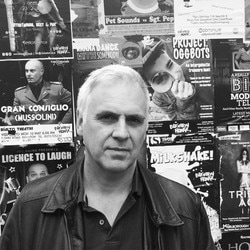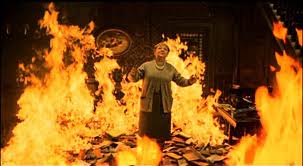 For today's guest blog we're delighted to invite Phil Gladwin, Writer, Editor, Founder of Screenwriting Goldmine Awards In the last few years we've seen screenwriting contests move ever more mainstream. There are stacks of them in the USA, and several really notable contests in the UK. Many more agents, producers and script editors are open to the idea that getting a result in the bigger contests is a legitimate part of getting the kind of momentum new writers need. Winning a contest is great, but don't get distracted and see it as an end in itself. It's really only valuable if it helps towards your real goal - getting hired as a screenwriter. What's more, these contests often charge an entry fee - and that can add up. So how do you decide how to spend your money? [I have a vested interest I must declare - in 2012 I founded the Screenwriting Goldmine Awards, so this article is written from that perspective.] 1. Does the contest have clear industry links? Look for evidence of interest and support from the industry you want to join, either directly on the judging panel, or in affiliations to agencies, particular production companies, or broadcasters. At the Goldmine we have a taken an independent stance. We have no specific affiliation, but we do have 35 senior figures from across the British TV industry who read all the finalist scripts, and who decide the eventual winner. 2. Try to check the background of the readers in the initial stages Skilled people are not cheap, so some contests will use people with little or no real professional script-editing experience to do the first pass and read the entries as they come in. You've taken months, perhaps years to write this script; do you really want it to be assessed by someone who started in the industry last week? 3. How many entries do they get? In some of the bigger American contests they get literally thousands of entries, all competing for a handful of prizes. Given that you need to win outright, or at least be in the very last short lists a couple of times, to make an agent or producer pay much attention, you have to do the maths here. Are you happy with the odds 4. Pick a contest that aligns with your aims If you really want to write massive crowd-pleasing shows for a mass market, you will probably not find a terribly receptive ear at the Channel 4 Screenwriting contest. Similarly, if you want to write a small domestic sit-com for British viewers, the odds are that won't go down TOO well with Francis Ford Coppola's Zoetrope contest. And finally one test that you should run on yourself: 5. Do you LOVE your script? If you don't think it's practically perfect, however will the rest of the world fall in love with it? Which translates practically to you not entering a script you see is a good rough sketch. If you know there are problems, but you expect the judges to see past the bits that don't work until they find the good bits, well, you may have a problem. The standard is much too high at the top of these competitions. Winning scripts tend to be technically polished well as full of brilliant ideas. Apply these tests, and you can be just a little more confident that your entry fee is being well spent. The Screenwriting Goldmine Awards run every year. We are currently accepting scripts until 31st January 2017. More information at: https://awards.screenwritinggoldmine.com
1 Comment
 by Charles Harris Our polished new draft is almost finished - last time we gave the dialogue a thorough work out. But we're working in a visual medium. Your descriptions are even more vital - and yet many screenwriters fall down badly here, writing descriptions that are at best boring and at worst sabotage the whole script. Visual means visual Having written the best dialogue you can - now your first task is to try to cut it all out! How much do you really need? Italian writer-director Lina Wertmuller tries writing a complete draft with no dialogue at all. It may sound drastic, but it's an excellent way to force yourself into visual storytelling. Once you've done this, you can always replace those lines that you absolutely still have to have. Then it's time to make those descriptions really pull their weight in your script. The biggest mistake that writers make at this stage is either writing descriptions that are flat, over-technical and fail to bring out the mood in an interesting way. Or overwriting - as if writing a literary work, such as a novel or short story. 8 steps to creating cinema This is where you bring out the filmic quality of your story - picture and sound. Your job is to evoke the feeling of watching the finished movie or TV show - with economy and power. Re-read each scene in turn, seeking out: 1. Dialogue that can be replaced with visuals (or sound) Can that line of beautiful, witty, moving dialogue be better expressed in a cinematic way? Often a thought, mood or idea can be more strongly evoked by an action, a look, an off-screen sound effect or some similar piece of cinematic storytelling. Instead of someone saying how angry they are, for example, we can see them crumple up a letter or hear them hammering a nail into a piece of wood. 2. Descriptions that are in the wrong place Writers who've read a number of stage plays might be tempted to use the theatrical convention where scenes open with detailed descriptions of the stage layout. However a screenplay must only give what's dramatically relevant at the time. Don't start a scene with a lengthy description of the location. Set the scene with a single pithy sentence and then move straight into action. INT. LECTURE THEATRE - DAY In the vast hall, long lines of chairs wait, empty. MARK checks the time on his watch... If a prop, such as a lectern, is going to be needed later - then you can safely leave it out until it's needed. 3. Novelising By contrast, novels and short-stories tend to describe scenes in great detail throughout. This too doesn't work for a script. You may want to describe the bustle of the railway station, with those interesting odd-ball passengers, the ramshackle coffee stall, the sun slanting through the glass roof... But if it's not dramatically relevant you absolutely must cut it out. Screenwriting is closer to haiku - a single well-chosen detail stands for the whole. 4. Mind-reading At the same time, you can only describe what could be filmed (or recorded on sound). So cut out all lines which tell us what someone is thinking, or remembering, unless the audience could reasonably work it out for themselves. Lines such as: He stares out of the window remembering that this is the view that his ageing aunt would have seen just three days before she was arrested.... 5. Editorialising Similarly, you can't make editorial comments such as Politics are a nasty business. Instead, see if you can find an inventive cinematic way to make it clear what one or more of the characters are thinking. For all his dialogue skills, Aaron Sorkin is also brilliant at finding visual ways of conveying characters' thoughts. 6. The bleeding obvious Delete anything that would be obvious from the context. If it's raining, you don't need to say that people are sporting coats and umbrellas. If the scene is a courtroom, we can assume there are seats, lawyers, a judge... For the same reason, you shouldn't ever say that your protagonist is beautiful or fit. When did you ever see a movie where the star actors weren't! Only include such things if they go against expectation - your hero doesn't have an umbrella in the rain, the hero is a fat slob, etc. 7. Locations that don't deliver Many writers choose the first locations that come to mind and stick with them. But those first thoughts are rarely very exciting. Look at each setting and ask yourself if it's adding the most it can to your scene. Does that action have to take place in an office, or living room, or restaurant? What about somewhere more unusual and evocative? Such as a graveyard, or the avionics bay of a jumbo jet, or in the middle of a martial arts class? 8. Descriptions that don't evoke Finally none of your descriptions should be flat, dull or cliched. Good screenplays bring a moment to life in a short, freshly-minted phrase. For the same reason, ditch technical directions such as camera shots. These should be avoided because they break the mood. Use your originality and your language skills to the full to evoke character, location, atmosphere, action so that we get the feeling - from high tension to romantic bliss. But keep it brief. In the next episode... By now your script should be really tight. Story, structure, characters, scenes, dialogue and descriptions the best you can make them. There's just one big thing that needs to be done before you get it ready to send out. Indeed, the next draft could turn out to be the most important of all. And that's the subject for next time. Charles Harris is an international award-winning writer-director. His book Complete Screenwriting Course reached the Top Two in Amazon's bestseller list for TV scriptwriting and has been in the Top Nine for cinema scriptwriting for many months now. <previous next> |
BLOGTHE ONLY PLACE TO TALK ABOUT THE CRAFT OF SCRIPTWRITING.
|
Privacy Policy © Euroscript Limited 2020

 RSS Feed
RSS Feed


